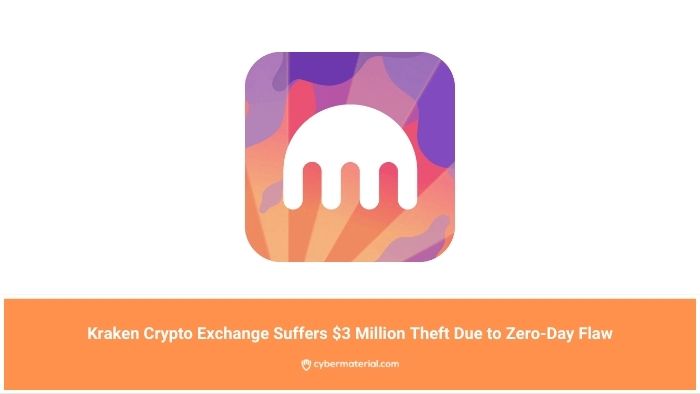June 20 2024 – Cyber Briefing

👉 What’s going on in the cyber world today?
Microsoft Email Accounts, Fickle Stealer, Windows, SquidLoader Malware, Phishing Attacks, Atlassian, Confluence, Jira, Rogue Raticate, Malicious PDFs, Kraken Crypto Exchange, CDK Global, Crown Equipment, UK Health Club Chain, Deepfake Scandal, Network Security, Space Industry, Chris Pashley, ARPA Health, Japan, New Zealand, Intelligence Sharing Pact, PQShield.
Listen to the full podcast
A researcher discovered a bug that allows anyone to impersonate Microsoft corporate email accounts, making phishing attacks more convincing. Despite reporting the issue to Microsoft, the company initially dismissed the report, prompting the researcher to publicize the bug. This vulnerability affects Outlook users, posing a potential threat to at least 400 million users worldwide.
Hackers exploit Fickle Stealer, a Rust-based malware, to steal login credentials, financial data, and other sensitive information from Windows systems. This high-tech program evades detection through sophisticated techniques, including code injection and communication via Telegram. Cybersecurity researchers at Fortinet discovered its extensive capabilities and highlighted the importance of robust security measures to combat evolving threats.
Cybersecurity researchers have discovered SquidLoader, a new evasive malware loader targeting Chinese organizations through phishing campaigns. This malware uses advanced evasion techniques, such as encrypted code segments and debugger detection, to avoid detection and analysis. SquidLoader’s attack chains involve phishing emails with disguised attachments that lead to the execution of additional malicious payloads from remote servers.
Atlassian has released software updates addressing multiple high-severity vulnerabilities in Confluence, Crucible, and Jira. The updates resolve issues including a critical broken access control flaw and several server-side request forgery vulnerabilities in the Spring Framework, as well as other significant bugs. The patches are now available in the latest versions of Atlassian’s software, ensuring enhanced security and preventing potential exploitation.
The cybercriminal group Rogue Raticate has launched a new campaign targeting enterprises with weaponized PDF files that deploy the NetSupport Remote Access Tool (RAT). Using social engineering tactics, the group tricks recipients into clicking malicious URLs embedded in PDFs, leading to malware installation. Symantec has implemented protective measures to counter these threats, highlighting the importance of vigilance against unsolicited emails.
Alleged security researchers exploited a zero-day vulnerability in the Kraken crypto exchange, resulting in the theft of $3 million worth of cryptocurrency. Kraken’s Chief Security Officer Nick Percoco revealed that the attackers used a critical bug to arbitrarily increase wallet balances and withdraw funds. The company quickly patched the flaw and notified law enforcement, but the researchers have refused to return the stolen funds.
CDK Global, a key software provider for auto dealerships, was hacked, causing a shutdown of its systems and affecting about 15,000 dealerships’ operations. This incident disrupted major dealerships, including General Motors and Group 1 Automotive, leaving employees resorting to manual methods for transactions. While CDK has started restoring some systems, extensive testing and investigation continue to fully resolve the issue.
Crown Equipment Corporation, a leading forklift manufacturer, suffered a ransomware attack on June 10, 2024, halting production and administrative operations worldwide. Employees are resorting to manual methods due to inaccessible IT systems, with many facing wage uncertainties. The attack, possibly an insider threat, has prompted law enforcement involvement, highlighting the critical need for robust cybersecurity measures.
A massive data breach at UK’s Total Fitness health club chain exposed 474,651 images and personal data due to a non-password-protected database. Discovered by cybersecurity researcher Jeremiah Fowler, the leak included profile pictures, passports, credit cards, and even sensitive content linked to members’ OnlyFans accounts. Total Fitness has closed the exposed database and notified the ICO while continuing to communicate with affected members.
Jacob Elordi is the latest victim of a disturbing deepfake scandal where his likeness was used in a pornographic video without consent. The video, shared widely on X, combines his face with explicit content from another source. This incident underscores the growing threat of deepfake technology in manipulating digital content to deceive and exploit individuals, prompting calls for stronger regulatory measures.

📢 Cyber News
Government agencies from the US, New Zealand, and Canada have jointly issued new guidelines urging organizations to adopt modern security solutions like SSE and SASE to strengthen their network defenses beyond traditional VPNs. These approaches, aligned with zero trust principles, offer more robust protection and granular access controls against potential cyber threats, addressing vulnerabilities highlighted in recent incidents.
Erin Miller of Space ISAC highlights rampant cyber threats against space infrastructure, urging unified defense efforts. These attacks encompass state-sponsored hacking and operational disruptions, posing grave risks to critical sectors like national security and aviation. Amidst growing U.S. government interest, collaboration between industry and agencies becomes pivotal in countering evolving cyber threats
Chris Pashley, previously with CISA and CBP, brings extensive federal cybersecurity expertise to ARPA-H. His appointment aims to bolster cybersecurity measures as ARPA-H advances pioneering health research initiatives, ensuring robust protection of critical data and operations.
Japan and New Zealand agreed on an intelligence sharing pact to strengthen security cooperation and address global challenges. Prime Ministers Kishida and Luxon met in Tokyo to advance ties, discussing security partnerships and economic resilience, while emphasizing the importance of information security and economic cooperation.
PQShield, a UK-based post-quantum cryptography firm, has raised $37 million in Series B funding led by Addition. This funding round, which includes investors like Chevron Technology Ventures and Legal & General, aims to expand PQShield’s quantum-safe cryptography solutions across hardware, software, and cloud platforms. The company plans to deploy these funds to enhance its commercial operations and deliver secure upgrades to organizations worldwide.
Copyright © 2024 CyberMaterial. All Rights Reserved.
Get Help
July 31, 2025 – Cyber Briefing
July 30, 2025 – Cyber Briefing
July 29, 2025 – Cyber Briefing
July 28, 2025 – Cyber Briefing
July 25, 2025 – Cyber Briefing










